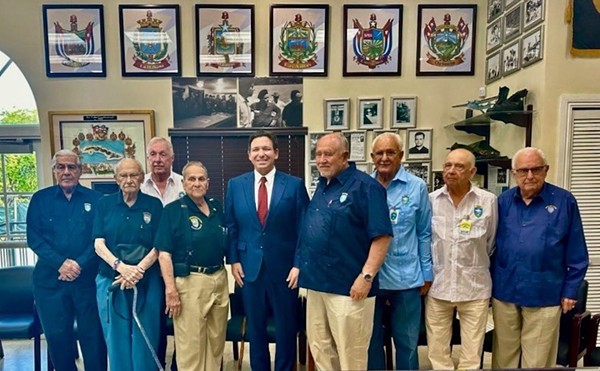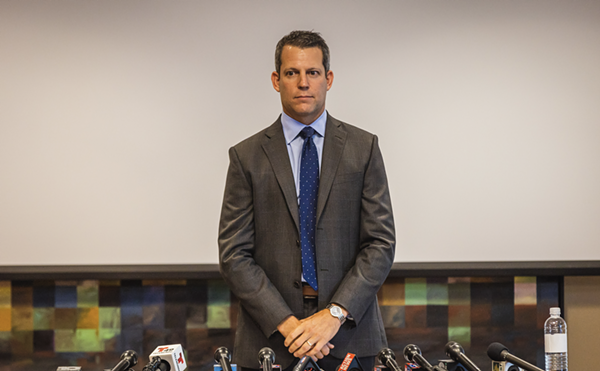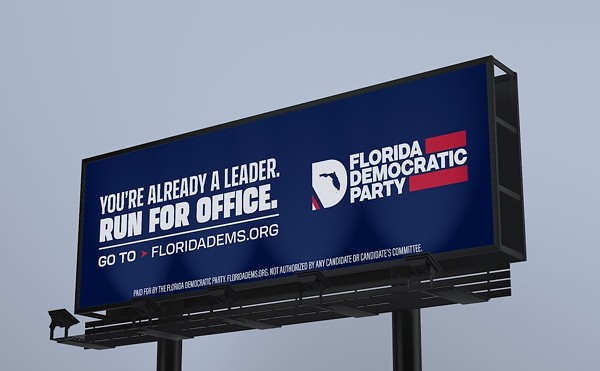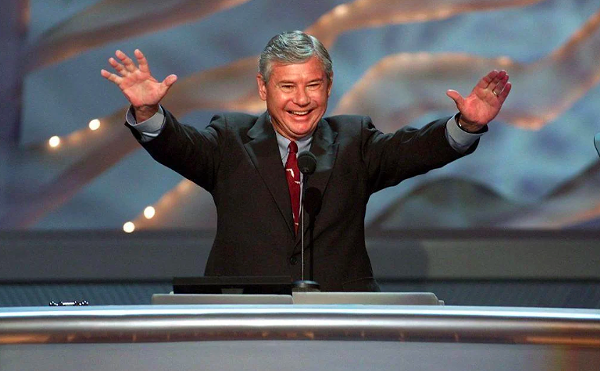No doubt both political parties will begin spending megabucks in the special election next year to win Florida's 13th Congressional District in Pinellas County, now a swing seat with the death of Bill Young earlier this month.
Will it matter who spends the most? Hard to say, but the fact is that in every election cycle in the U.S. the spending increases, with the 2012 election America's first $10 billion campaign. That's substantially more that the more popular $6 billion figure that has been previously asserted. But a new book, Dollarocracy: How the Money and Media Election Complex is Destroying America, details that increased spending - as well as making the case for why our elections have been sapped of their true meaning by the flood of unaccountable money that has entered into our electoral system.
Dolloracacy is written by John Nichols and Robert McChesney. The authors admit that complaining about money in politics isn't an entirely new phenomenon, but note in the introduction that it's an accelerating phenomenon.
Nichols is the Washington correspondent for The Nation; McChesney a professor at the University of Illinois and a longtime media reform advocate. This is their fourth book where they share a byline, and the pair are currently touring to promote it. That included a stop last week at Book Passage in Marin County, just north of San Francisco.
Though the tone and content of Dollarocracy is frankly somewhat bleak, the authors are in fact quite cheerful in addressing how they believe the country can still right itself from the onslaught of spending from the new usual suspects like the Koch Brothers and Sheldon Adelson.
Referring to Ted Cruz and the power that the Tea Party has had on American politics in the past few years, Nichols attributed the rise in a conservative ascendancy in part to a failed media. "You can’t blame the people when you have a media as lousy as the media we have in this country," he lamented, bemoaning the reality that thousands of journalists have been laid off from American newspapers over the past five years.
Much of that is attributable of course to the reduction of ads placed in papers. Nichols says the only ads that "stand up" are political ads, which have become quite a cash cow for local television stations.
Throughout last year's presidential campaign, the Tampa Bay market was generally one of the top five in the country in terms of number of ads that ran on local stations. But that doesn't mean they (or their broadcasting brethren) are paying that much attention to the accuracy of such ads.
In Dollarocracy, the authors specifically pick on WTSP, the CBS affiliate in the Tampa Bay market, and where some of the station's reporters teamed up with the Tampa Bay Times PolitFact fact-checking resource to assess the credibility of local ads that aired. The book notes that PolitiFact gave a "pants on fire" rating for an ad aired by the Koch Brothers' Americans for Prosperity.
They did so, PoliFact's Angie Holan said, "because it's so misleading, and it's ridiculously false." Nonetheless, WTSP aired the spot 150 times in the month following the report. "If the station's own news team says it's false, and they keep running it, you have the question the station's commitment to the audience," Free Press policy director Matt Wood said.
In his address to the audience, Professor McChesney focused on the large discrepancy between how much the U.S. spends on elections vs. the rest of the world, saying that our 2012 election outspent the German federal election this year by a 32-1 ratio, and Great Britain's 2010 contest by a 29-1 margin. He also mentioned something that many Americans probably don't realize: that political advertising on television and radio is banned in Great Britain, France and Belgium (though in the latter two countries print ads are acceptable).
(For more information on paid political advertising around the world, check out this report from the Centre for Law and Democracy).
Although both decry the 2010 U.S. Supreme Court decision on Citizen's United that opened the floodgates for corporate cash in politics, they go back time in Dollarocracy to highlight what they say was the smoking gun memo that compelled conservatives to step up their money game to compete in elections some four decades ago- a six-page memo written by attorney (and soon to be Supreme Court Justice) Lewis Powell that was forwarded to key members of the U.S. Chamber of Commerce in 1971 that McChesney calls a "blueprint" for business to take over the U.S. government.
"After the memo was written the increase in lobbying was tenfold," he said. In the book the authors write that though Powell wasn't the first Republican (they cite Barry Goldwater and conservative writer M. Stanton Evans as delivering similar manifestos) to make a case for the development of long-term strategies to challenge liberal elites, but that the chamber members "heard Powell in a way that it had not heard others preaching that corporations needed to step up when it came to producing propaganda and political outcomes."
McChesney also lambasts the surge in what Republicans call election reform measures and Democrats call voter suppression laws that have sprouted up throughout the country after Barack Obama was elected in 2008. He says it's being done because Republicans don't believe they can win a fair election. "They don't have the numbers on their side. They know we do, so they gotta rig the system so they can help their power...I didn't think that was the case 30 years ago, or 20 years ago. I think that now, they get that, in terms of winning a fair election," which he said actually gives progressives power.
"We should be optimistic because we're in a moment now where were on a precipice of great change," adding that the trends towards inequality and more poverty in America simply aren't sustainable going forward.
Nichols is also optimistic about getting a Constitutional Amendment passed that would overturn Citizens United. 16 state legislatures have called for such an amendment
Still, the odds are long there. As PoliFact reported in 2011, there have been over 11,000 attempts to pass amendments to the Constitution in our history, with only 27 passing.


















